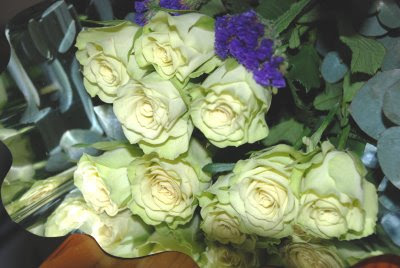 Dear all, today I read across the excerpt from one of the transcripts, somehow, it tickled me about singles being treated unfairly at the workplace. I met a few singles talking about the mistreatment they received at the workplace, some mentioned about what I called 'universal' issue of gender bias, then some are going beyond the gender bias, single bias.....
Dear all, today I read across the excerpt from one of the transcripts, somehow, it tickled me about singles being treated unfairly at the workplace. I met a few singles talking about the mistreatment they received at the workplace, some mentioned about what I called 'universal' issue of gender bias, then some are going beyond the gender bias, single bias....."To me, being single, as a Malay lady, no limit, you can do anything as long as you know yr limit, keep on the right track, its ok, bukan faktor penghalang kpd kerjaya w/pun saya sik berkahwin. People are being negative but they never know that singles contribute more to the public, in this office, singles are on going working, sbb org kawin banyak commitment. Mcm lah single tuk sik perlu makan, minum, rehat, mcm machine. That’s why, dlm transfer, engkah nya jauh2 sbb nya single, that’s what happened to me, 9 years in B….., sik dpt tukar2, mun I di Kuching, lebih byk opportunity to further my study. Now meli rumah pun sampei pencen, I’m nearing retirement, yet my house purchase is still unsettled. They perceived single people are less important, as second class people, but they are the first class people to do their work. As in married people are allowed to take leave to take care of a sick family member, the privileges are not given to unmarried people. Furthermore, single people are taken for granted and posted to a far place, as if nya sik pandei sakit kah, sik ada mak bapak kah, yet I’ve been sent to B…. for nine years when I should have furthered my studies in Kuching.. Single people are treated as secondary importance, yet they provide the best service. Peoples’ mentality needs to be changed"
Descriptions of today’s single women around the globe are dated and stereotypical. In Malay culture, most people cannot accept the idea that a never married ‘normal’ woman could be happy and satisfied with her life. Clearly for most people and most cultures, marriage is a pre-ordained path, the preferred social status and the sanctioned way. Linn (1995) suggested women are trained to believe that a man needs a woman to be happy and a woman needs a child in order not to be dejected. She further pointed out that a woman who has no husband is worse than a man who has no wife. An unmarried woman without any children has no future, but a male who is not a father still has a future. Thus, women who have not married are often stigmatized and discriminated against.
